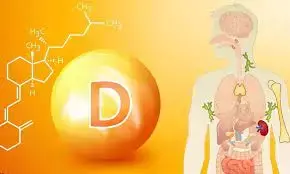- Home
- Medical news & Guidelines
- Anesthesiology
- Cardiology and CTVS
- Critical Care
- Dentistry
- Dermatology
- Diabetes and Endocrinology
- ENT
- Gastroenterology
- Medicine
- Nephrology
- Neurology
- Obstretics-Gynaecology
- Oncology
- Ophthalmology
- Orthopaedics
- Pediatrics-Neonatology
- Psychiatry
- Pulmonology
- Radiology
- Surgery
- Urology
- Laboratory Medicine
- Diet
- Nursing
- Paramedical
- Physiotherapy
- Health news
- Fact Check
- Bone Health Fact Check
- Brain Health Fact Check
- Cancer Related Fact Check
- Child Care Fact Check
- Dental and oral health fact check
- Diabetes and metabolic health fact check
- Diet and Nutrition Fact Check
- Eye and ENT Care Fact Check
- Fitness fact check
- Gut health fact check
- Heart health fact check
- Kidney health fact check
- Medical education fact check
- Men's health fact check
- Respiratory fact check
- Skin and hair care fact check
- Vaccine and Immunization fact check
- Women's health fact check
- AYUSH
- State News
- Andaman and Nicobar Islands
- Andhra Pradesh
- Arunachal Pradesh
- Assam
- Bihar
- Chandigarh
- Chattisgarh
- Dadra and Nagar Haveli
- Daman and Diu
- Delhi
- Goa
- Gujarat
- Haryana
- Himachal Pradesh
- Jammu & Kashmir
- Jharkhand
- Karnataka
- Kerala
- Ladakh
- Lakshadweep
- Madhya Pradesh
- Maharashtra
- Manipur
- Meghalaya
- Mizoram
- Nagaland
- Odisha
- Puducherry
- Punjab
- Rajasthan
- Sikkim
- Tamil Nadu
- Telangana
- Tripura
- Uttar Pradesh
- Uttrakhand
- West Bengal
- Medical Education
- Industry
Vitamin D deficiency associated with urinary incontinence and OAB in kids: Study

Vitamin D deficiency is more common in children with urinary incontinence and Overactive bladder (OAB) than in healthy children, according to a recent study published in the International Brazilian Journal of Urology.
Overactive bladder (OAB) is a common syndrome associated with lower urinary tract symptoms (LUTS), especially urinary incontinence in children, which may affect the patient's quality of life (QoL). Vitamin D deficiency has been shown to be associated with OAB syndrome. This study evaluated the relationship between vitamin D status and OAB-related symptoms and QoL in children.
The study included 52 pediatric patients with OAB-related urinary incontinence and 41 healthy children. LUTS were assessed using the Dysfunctional Voiding and Incontinence Symptoms Score (DVISS) questionnaire, and QoL was assessed using the Pediatric Incontinence Questionnaire (PINQ). Oral vitamin D supplementation was given to patients with OAB with vitamin D deficiency. Urinary symptoms and QoL were evaluated before and after vitamin D supplementation.
The Results of the study are:
Vitamin D deficiency was more common in the OAB group (75%) than in the control group (36.6%). Logistic regression analysis revealed that vitamin D status (<20ng/mL) was a significant predictor of OAB. Both pre-treatment and post-treatment DVISS and PINQ scores showed a positive correlation. After vitamin D supplementation, 8 (23.5%) patients had a complete response and 19 (55.9%) patients had a partial response. Significant improvement in QoL was also achieved.
Thus, the researchers concluded that Vitamin D deficiency is more common in children with urinary incontinence and OAB than in healthy children. Although vitamin D deficiency is not routinely evaluated for every patient, it should be evaluated in treatment-resistant OAB cases. Vitamin D supplementation may improve urinary symptoms and QoL in patients with OAB.
Reference:
The effect of vitamin D deficiency in children with overactive bladder related urinary incontinence by Burak Özçift et al. published in the International Brazilian Journal of Urology.
Dr. Shravani Dali has completed her BDS from Pravara institute of medical sciences, loni. Following which she extensively worked in the healthcare sector for 2+ years. She has been actively involved in writing blogs in field of health and wellness. Currently she is pursuing her Masters of public health-health administration from Tata institute of social sciences. She can be contacted at editorial@medicaldialogues.in.
Dr Kamal Kant Kohli-MBBS, DTCD- a chest specialist with more than 30 years of practice and a flair for writing clinical articles, Dr Kamal Kant Kohli joined Medical Dialogues as a Chief Editor of Medical News. Besides writing articles, as an editor, he proofreads and verifies all the medical content published on Medical Dialogues including those coming from journals, studies,medical conferences,guidelines etc. Email: drkohli@medicaldialogues.in. Contact no. 011-43720751


